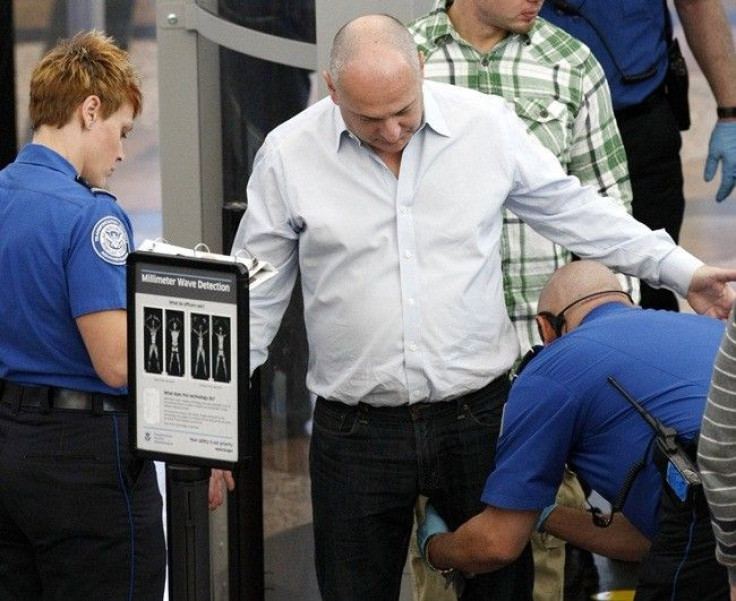TSA officials defend pat-downs

Government officials are mounting a campaign ahead of the busy holidays to explain why some holiday travelers may be subjected to airport security pat-downs requiring officers to touch their breasts and genitals.
As heavy holiday travel begins this week, government officials are seeking to inform the public on the procedure which has generated controversy for being too invasive.
Emptying pockets and avoiding wearing heavy jewelry and clothes with high metal content when going through airport metal and body-imaging scanners are the most likely ways to prevent an alarm that triggers the thorough screenings which involve touching passengers' private areas.
Passengers objecting to the use of advanced-imaging-technology scanners, which have also raised privacy concerns because of somewhat detailed images of the curvature of a person's body, are subject to the procedure. Health concerns have also been raised about the backscatter x-ray machines, as they are also known.
U.S. Rep. Rush Holt, D-NJ. in a letter last week to Transportation Security Administrator John S. Pistole cited Columbia Professor David Brenner who said the backscatter x-ray devices currently deliver to the scalp 20 times the average dose that is typically quoted by TSA and throughout the industry.
Excessive x-ray exposure can act as a cancer rate multiplier, Holt quoted Brenner as saying.
Officials say the pat-down can be conducted in a private room on request and will be done by a person of the same gender. An officer will explain the procedure before and during the process. In addition, children may receive a modified pat-down, according to the travel guidelines.
The TSA, which issued its latest holiday travel guidelines this week, has been embroiled in controversy in recent weeks about the proper balance between security and privacy after some travelers and lawmakers have raised concerns that the pat-down procedure is too invasive.
Pistole acknowledged Tuesday that the public may not see the agency he leads as properly striking the balance. In a speech to the Aero Club on Tuesday, Pistole did not address the controversy directly as he has at a recent Senate hearing, where he said the agency would not be changing its procedures at this time.
My job - and the agency's challenge - is to lead TSA through the next stage as it matures into a truly high-performance, world-class organization that utilizes smart, intelligence-driven security solutions to facilitate travel, without compromising the safety, privacy or liberties of the American people. And just as a reality check, I know TSA is not necessarily universally regarded in this light, he said to the Aero Club.
Lawmakers have been mostly supportive of the security policies. However, they said Pistole's agency needed to do more to educate the public about the procedure.
Since the hearing, the TSA has attempted to explain why the procedures are in place, but stopped short of making any immediate changes.
On Monday, the TSA made available to airports a video and signage to thank the traveling public for their continued support and partnership and address new implemented procedures.
In a statement released Sunday Pistole said his agency was constantly evaluating and adapting our security measures, noting that there is a continual process of refinement and adjustment to ensure that the best practices are applied and that feedback and comment from the traveling public is taken into account.
The American Civil Liberties Union says it has received hundreds of complaints in the weeks since the policy has been in place, saying complaints came from men, women and children who reported feeling humiliated and traumatized by these searches, and, in some cases, comparing their psychological impact to sexual assaults.
© Copyright IBTimes 2024. All rights reserved.











